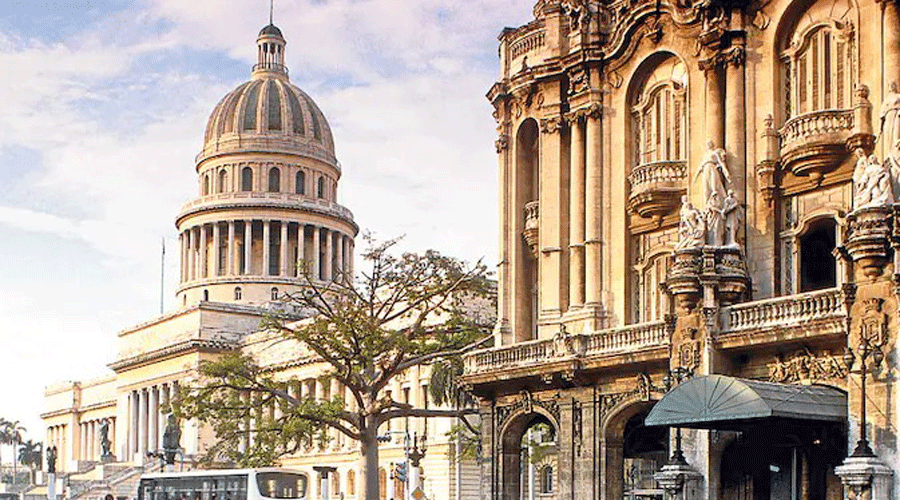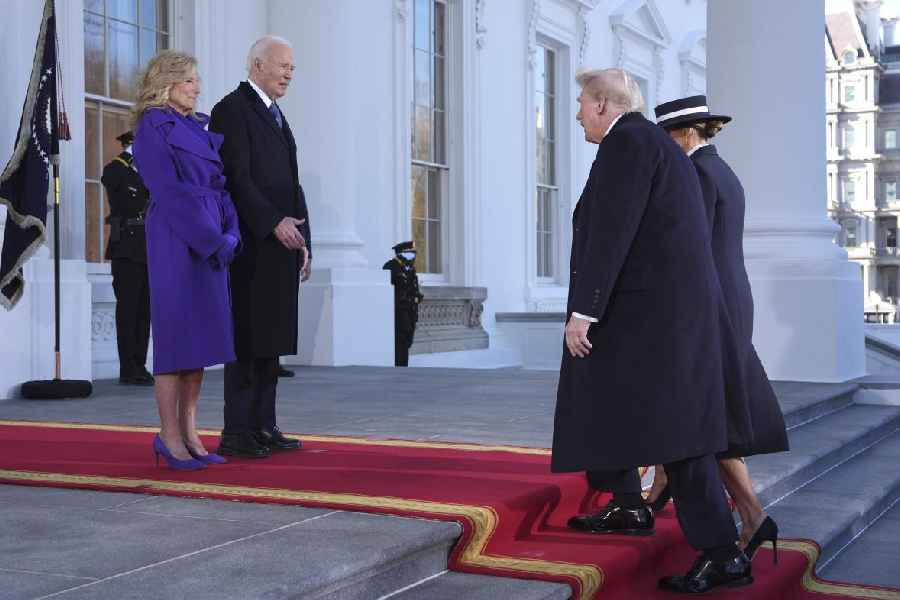Roger García Ordaz makes no secret of his many attempts to flee.
He has tried to leave Cuba 11 times on boats made of wood, Styrofoam and resin, and has a tattoo for each failed attempt, including three boat mishaps and eight times being picked up at sea by the US Coast Guard and sent home.
Hundreds of homemade, rickety boats have left this year from the shores of Baracoa, a fishing village west of Havana where García, 34, lives — so many that locals call the town “Terminal Three”.
“Of course, I am going to keep on throwing myself into the sea until I get there,” he said. “Or if the sea wants to take my life, so be it.”
Living conditions in Cuba under Communist rule have long been precarious, but today, deepening poverty and hopelessness have set off the largest exodus from the Caribbean island nation since Fidel Castro rose to power over half a century ago.
The country has been hit by a one-two-punch of tighter US sanctions and the Covid-19 pandemic, which eviscerated one of Cuba’s lifelines — the tourism industry. Food has become even more scarce and more expensive, lines at pharmacies with scant supplies begin before dawn and millions of people endure daily hours-long blackouts.
Over the last year, nearly 250,000 Cubans, more than 2 per cent of the island’s 11 million population, have migrated to the United States, most of them arriving at the southern border by land, according to U.S. government data.
Even for a nation known for mass exodus, the current wave is remarkable — larger than the 1980 Mariel boatlift and the 1994 Cuban rafter crisis combined, until recently the island’s two biggest migration events.
But while those movements peaked within a year, experts say this migration, which they compare to a wartime exodus, has no end in sight and threatens the stability of a country that already has one of the hemisphere’s oldest populations. The avalanche of Cubans leaving has also become a challenge for the US. Now, one of the highest sources of migrants after Mexico, Cuba has become a top contributor to the crush of migrants on the US-Mexico border, which has been a major political liability for President Biden and which the administration considers a serious national security issue.
“The numbers for Cuba are historic, and everybody recognises that,” said a senior state department official who was not authorized to speak publicly about the matter. “That said, more people are migrating globally now than they ever have been and that trend is certainly bearing out in our hemisphere, too.”
Many experts say that US policy towards the island is helping fuel the very migration crisis that the administration is now struggling to address.
To appeal to Cuban American voters in South Florida, the Trump administration discarded President Barack Obama’s policy of engagement, which included restoring diplomatic relations and increasing travel to the island. President Donald J. Trump replaced it with a “maximum pressure” campaign that ratcheted up sanctions and severely limited how much cash Cubans could receive from their families in the US.
“This is not rocket science: If you devastate a country 90 miles from your border with sanctions, people will come to your border in search of economic opportunity,” said Ben Rhodes, who served as deputy national security adviser under Obama and was point person on Cuban talks.
Although President Biden has begun to retreat from some of Trump’s policies, he has been slow to act for fear of angering the Cuban diaspora and incurring the wrath of Senator Robert Menendez, a Democrat and a powerful Cuban American who chairs the Senate Foreign Relations Committee, said William M.LeoGrande, a professor at American University, who has written extensively on US-Cuba relations.
The administration has also expressed concerns over human rights on the island.
“These two reasons — one domestic politics and one foreign policy — reinforce one another,” LeoGrande said.
While any significant rollback of sanctions remains off the table, the two governments are engaged in efforts to address the extraordinary migration surge.
New York Times News Service











